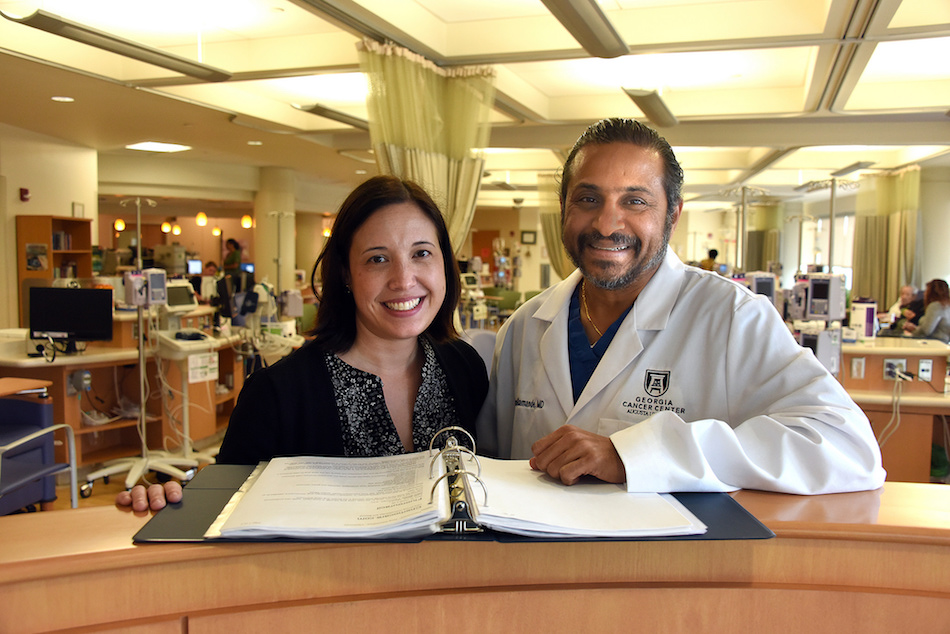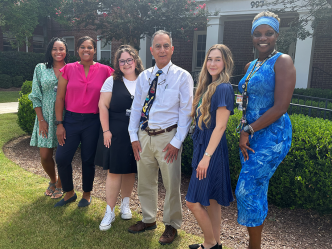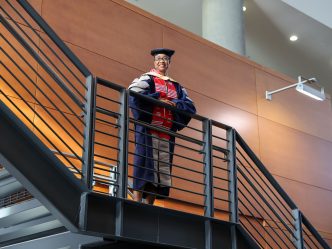The Medical College of Georgia at Augusta University is establishing the state of Georgia’s first gynecologic oncology fellowship program to train physicians who diagnose and treat the cancers that affect 91,000 and kill 30,000 women each year in the United States alone.
The three-year fellowship, one of less than 50 in the country, will help address the critical shortage of these physicians, says Program Director Dr. Bunja Rungruang, an assistant professor in the Department of Obstetrics and Gynecology’s Section of Gynecologic Oncology.
“There are only 1,266 board certified gynecologic oncologists in the entire country,” she said. “To put that in perspective, there are about 1,600 residents coming out of obstetrics and gynecology residency programs every year.”
Georgia is certainly no different than the rest of the country, with only a handful of these specialists that mostly serve urban areas like Savannah and Atlanta, says Dr. Sharad Ghamande, chief of the Section of Gynecologic Oncology and associate director for clinical research at the Georgia Cancer Center.
“For a state of our size we are really underserved and it’s a big deal to be able to train folks and maybe even get them to stay in the state, especially in south Georgia,” he says. “We get patients from all over south Georgia. They come all the way from Valdosta, Thomasville and Brunswick.”
The program, which is approved by the Accreditation Council for Graduate Medical Education, is comprised of two years of clinical training and a year of basic science or clinical research. The first fellow, Dr. Heather Williams, a fourth-year obstetrics and gynecology resident at University of Iowa Health Care, begins her training at MCG and AU Health July 1.
“She will be working with us learning about chemotherapy and the surgeries that we do,” Rungruang says. “She will also do rotations with surgical oncologists and radiation oncologists so she they can get exposure to the full spectrum of what we do.”
“Unlike a lot of subspecialties, we are a one-stop shop. We provide primary care, chemotherapy, perform surgeries – and not just gynecologic surgeries, but a lot of gastrointestinal, bladder and bowel surgeries – whatever we need to do in the course of taking care of our patients’ cancers,” Ghamande adds.
The plan is to add one fellow each year so that, eventually, the program is training three at the time. Recruitment for the 2018 academic year is already under way with 55 applications already in. “There are no other such fellowships in surrounding states like South Carolina, Mississippi, upper Florida or Louisiana, so this program will have a huge regional impact,” Ghamande says.
In addition to the gynecologic oncology fellowship, the Department of Obstetrics and Gynecology recently added a training program in reproductive endocrinology, the branch of medicine that identifies and treats infertility.
 Augusta University
Augusta University




